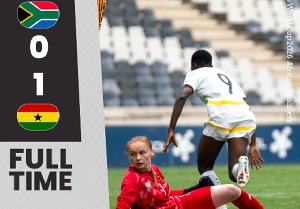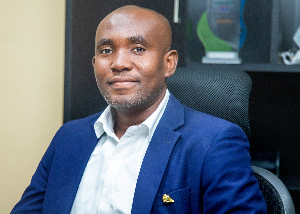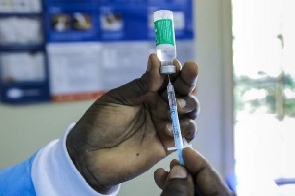The Society for Women Against AIDS in Africa (SWAA) Ghana, an advocacy group, has organised a health seminar to educate members of the Doryumu community and its environs on issues of reproductive health and hygiene.
Dubbed “Doryumu Health Outreach Seminar,” the programme held in collaboration with some stakeholders of Doryumu, was geared towards educating and informing members of the community on best reproductive health and sanitation practices to ensure a healthy reproductive life as well as to improve upon sanitation.
Doryumu is a medically underserved village in the Shai Osudoku District of the Greater Accra Region that is currently faced with an alarming high rate of teenage pregnancy and other health challenges due to lack of education on reproductive health issues and poor sanitation practices.
The seminar, which was funded by Biology Students’ Association at the University of Toronto Scarborough, One Love Media and Service to Humanity, provided education on health issues such as family planning, reproductive health rights, teenage pregnancy and its effect, laws on defilement and rape as well as proper hand washing practices, among others.
It was attended by community health nurses from the Ghana Health Service, chiefs and elders of the community, assemblymen, officials from the Domestic Violence and Victims Support Unit (DOVVSU) of the Ghana Police Service, heads of some religious organizations, volunteers, among others.
In a presentation on reproductive health, Ms Gloria Ama Dei-Tutu, President of Society for Women against Aids in Africa (SWAA) said the reproductive health of adolescents; especially the girl child could be enhanced immensely when parents provided enough protection for their wards.
She noted that parents often shun their responsibilities at early ages of life of their children, thereby exposing them to various social and health issues such as premarital sex, teenage pregnancy and or abortion, among others.
On teenage pregnancy, she said even though the phenomenon was with numerous challenges such as financial and economic difficulties, school dropout, being ostracised by the community, among others, an attempt to abort such pregnancies could be fatal.
Ms Dei-Tutu, therefore, emphasised that condoms could offer appropriate protection against unplanned pregnancies and sexually transmitted infections.
She entreated parents to make the future of their children a priority by putting in place measures that would protect them from engaging in such acts.
“Let’s make the talent and future of our children a priority. If we could all come together and say we are not attending this funeral because it is not our problem, so we are going to sleep and our daughters should, therefore, do same, this would help to curtail teenage pregnancies in this community”, she stressed.
She urged them to report any health issues to the appropriate health officials to avert any unforeseen complications.
Ms Sauliha Alli, a volunteer and a co-organiser in an interview with the media on the sidelines of the seminar said “according to a survey conducted by Women in Law and Development in Africa (WiLDAF) IN 2018, 60 per cent of young men and women in the community were involved in some form of child marriage”.
This, she noted, was a result of multifaceted reasons such as strong social norm, which seem to encourage and reward early child-birth, low socio-economic status of the people as well as low level of education on reproductive health, among others.

“Sometimes, there is pressure on the young girl to have a child because the socio-economic status of most people in the village is quite low so they are unable to become financially stable”.
Ms Alli reiterated the need for education to be prioritised within the community to ensure a change in the status quo.
“I’m therefore appealing to the community to educate themselves and to change this practice, defy this long history that has been happening”, she said.
Ms Esther Naa Ankrah, a co-organiser and volunteer, who has been providing vocational skills training to a group of young women in the community, on her part said organising such health seminars could be a game-changer in curbing teenage pregnancy in the community.
“One event will not solve all of the reproductive health issues present in the community. To really change the narrative of Doryumu, continuous education must be provided.”
She added that while funding primarily came from Canadian organisations and the initiative could be sustained with financial support from the Ghanaian government and corporate institutions.
Health News of Tuesday, 6 August 2019
Source: ghananewsagency.org
SWAA-Ghana, stakeholders empower community on reproductive health
Entertainment












